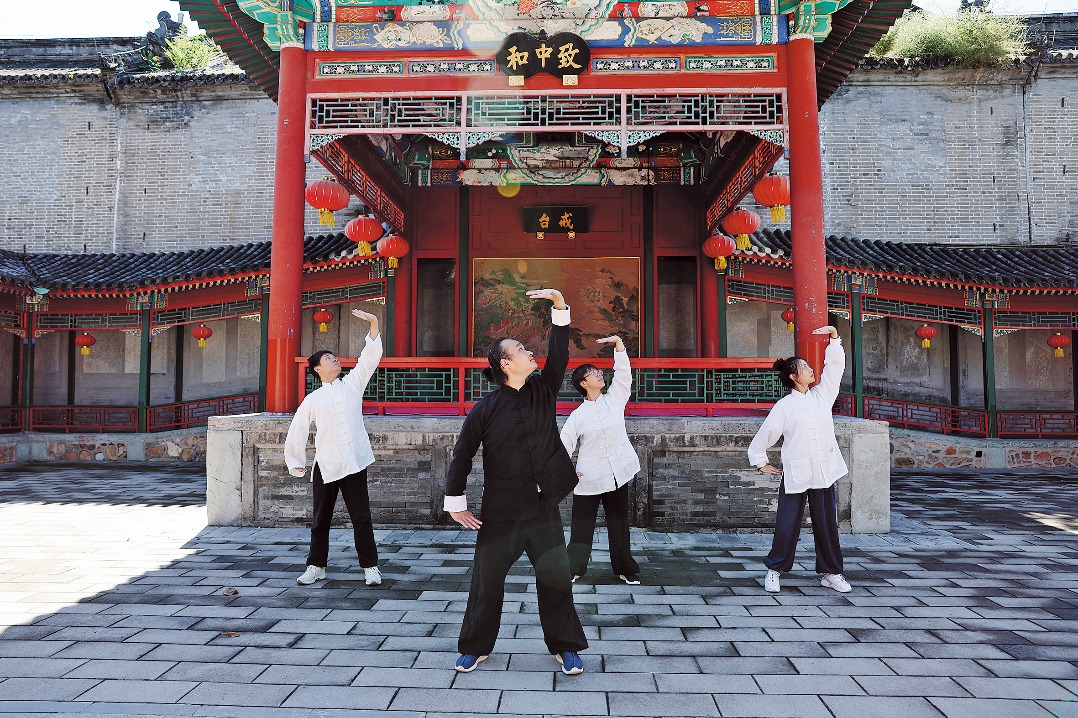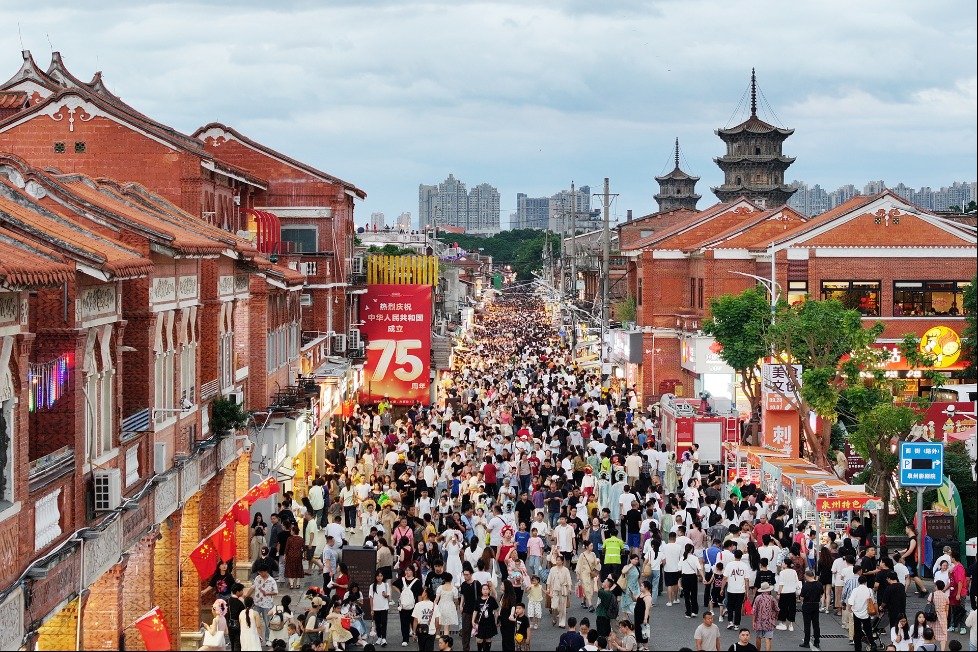Chinese barbecue skewers the F&B market
By LIU YUKUN | China Daily | Updated: 2022-09-10 10:12

Biz owners receive more capital but still need to beat some challenges
Once the mutton skewers began to sizzle on the barbecue, children at a campsite in Beijing gathered around, eyeing the fat, juicy, slightly burnt mutton to be slid onto their plates.
Campers were having a gathering of several families, and the corner with barbecue shelves became the center of attention after a day of hiking and playing games.
Chinese barbecue, or shaokao, constitutes a significant aspect of the country's cuisine with its unique flavoring techniques and the benefit of broadening people's social circles. A report by the Guotai Junan Securities showed that Chinese barbecue is second only to hot pot among late-night dining options. Its market size is expected to reach about 231.8 billion yuan ($33.3 billion) this year and nearly 400 billion yuan in 2026.
While the COVID-19 pandemic dealt a blow to the catering industry, Chinese barbecue stores remained resilient. According to Qichacha, a corporate information provider, the number of new barbecue stores has reached 150,000 since the COVID-19 outbreak. As of December, the total number of barbecue shops nationwide has exceeded 340,000.
"Chinese barbecue is served in individual portions, which we think is more hygienic during the COVID-19 pandemic, compared with a majority of others that are served on plates at the center of a table for people to share. In addition, many barbecues are served outdoors, which is also considered safer during the pandemic," said Zhang Yi, one of the parents at the family gathering.
Affordable, easy to prepare, safe to eat, and good for social interaction, Chinese barbecue has emerged as a top choice for dining during holidays or any time, especially when outdoor activities like camping became a burgeoning trend this summer amid COVID-19 resurgence.
"Chinese barbecue is a popular choice for eating at campsites. We cannot travel facing COVID-19, and camping in nature has become among the top options for leisure time. It's fun when several families gather around and chat while putting meat on the barbecue skewers. We also let our children choose what they like and help them put the skewers on the grill. The kids learn to help the adults and at the same time play with the other kids," Zhang said.
On Xiaohongshu, a Chinese lifestyle sharing platform, there are over 580,000 posts related to barbecuing and camping, with vivid pictures and captivating descriptions of the fun. The combination also became a trending topic on social media platform Weibo and short-video platform Douyin.
Ge Yue, a co-founder of Chongqing-based educational camping startup Starry Woods, said her barbecue suppliers have raised prices for ingredients and equipment twice this summer amid surging demand and a lack of sufficient supplies.
"One of the suppliers we had since May halted our cooperation even though we offered higher payment. He already had full bookings this summer. We had to stop providing barbecue at a few camps," Ge said.
Ge said barbecue suppliers at campsites usually offer a one-package service from equipment to ingredients, and even recycling and cleaning. "For long-distance hiking with camping, the suppliers have vacuum-sealed meat, vegetables and other ingredients."
The need for vacuum-sealed barbecue packages has spurred a market for vacuum sealers. Shandong Huier Machine Co Ltd, located in Weifang, Shandong province, has launched vacuum sealers specially designed for barbecues and machines to automatically skewer various types of ingredients.
Buoyed by increasing demand, online barbecue sales also saw a surge last year, said Mei-tuan, a Chinese food delivery platform.
Cities from East and South China led the growth. Among the top 10 cities in terms of barbecue order growth last year, nine are southern cities, and Wuhu in Anhui province ranks first with an annual growth rate of 90.3 percent, said Meituan.
The growing demand for barbecuing has drawn the attention of investors. Muwu Barbecue, a Chinese chain with more than 200 outlets across the country, announced to receive 100 million yuan in investment from Tiantu Capital in 2014. Long Time Ago Barbecue, another barbecue chain, received nearly 100 million yuan in investment in 2020 from BA Capital. Fengmao Barbecue also received nearly 100 million yuan investment from Fanqie Ziben-translated as Tomato Capital-in the same year.
"Despite progress in attracting capital in the Chinese barbecue market, it is not enough for such a huge market. Further efforts are still needed to build brands that are competitive and make their management more professional, in order to continue to attract investment for the better development of chain businesses," said Zhu Danpeng, a food and beverage analyst and deputy head of the Guangdong Provincial Food Safety Promotion Alliance.
Regardless of the booming market, many barbecue business owners still find it hard to profit. The report by Guotai Junan Securities showed that Chinese barbecue businesses require a huge amount of labor because some of the cooking processes cannot entirely rely on artificial intelligence, resulting in low overall net profit rates. On average, Chinese barbecue business owners find the break-even point at over 80 percent of total revenue.
Meanwhile, the social attributes of barbecuing determine that the overall table turnover rate is relatively low. Take the Zhengjun Barbecue chain as an example-its table turnover is only an average of 3 times per day, according to the report.
"Raising prices, increasing table turnover and serving more people are key for more profit at restaurants. However, unlike other types of restaurants where owners can change menus to add fancy specialties and expensive drinks and upgrade their decor to improve the atmosphere to raise prices or attract more consumers, many Chinese barbecue consumers don't like fancy stores, and they even prefer street grillers as long as the ingredients are fresh and the seasonings are good. They enjoy the kind of atmosphere that is down-to-earth and in which they can be totally relaxed," said Li Wen-xin, a 46-year-old barbecue store owner in Zibo, Shandong province.
When opening the customer-rating app Dazhongdianping, the top 10 recommended barbecue spots in late August were priced at around 100 yuan per person. In lesser-developed cities, the price could go down to about 30-50 yuan per person.
























